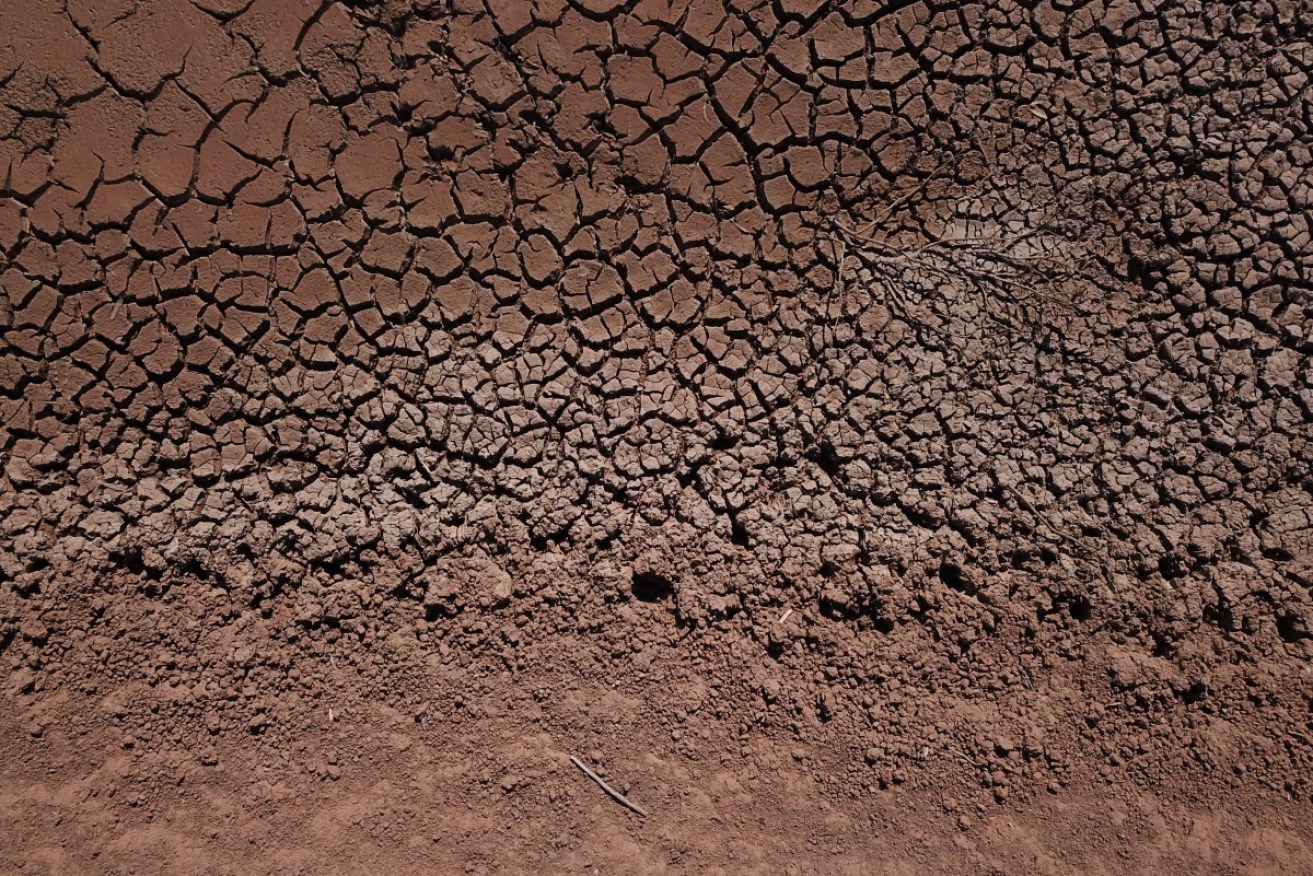Australia’s top scientist warns of seven ‘megatrends’

Drought will be one of the challenges faced in Australia in the next 20 years, the CSIRO says. Photo: AAP
Australia’s top scientist identifies seven ‘‘megatrends’’ that need action now to avert threats to our health and way of life.
A report to be launched by CSIRO chief executive Larry Marshall on Wednesday, says predicting droughts, out-thinking bushfires, accelerating vaccine development and stabilising energy supplies are all possible.
But to keep pace with technological change, the report says Australia will need another 6.5 million digital workers by 2025 – an increase of 79 per cent from 2020.
“There is a tidal wave of disruption on the way, and it’s critical we take steps now to get ahead of it,” Dr Marshall said.
The challenges of the next 20 years include superbugs, disrupted global trade, scarce water and food supplies, and an increasingly unstable climate the report warns will threaten our health and way of life.
The war in Ukraine and tension with China are tipped to have long-lasting impacts, driving defence spending higher and influencing the development of security and technology, trade, and supply chains.
But Dr Marshall says Australia can also forge a different future and use science to create it.
Currently available technologies could contribute $140 billion to $250 billion to Australia’s GDP by 2025.
“Australia has the highest wind and solar capacity of any developed nation and a wealth of critical energy minerals – we can be a leader in feeding the world’s hunger for clean energy,” he said.
Australia could become a leading producer and exporter of green hydrogen, but significant infrastructure investment and efficiency gains are needed to make it commercially viable, the report said.
“Green metal” manufacturing is identified as another opportunity, with international steelmakers looking to eliminate emissions from their supply chains.
Australia’s abundance of metals and minerals are in demand for clean energy technologies and future transport.
Electric vehicles are tipped to reach price parity with petrol and diesel by 2025, and leading car makers have committed to phasing out the internal combustion engine over the next two decades.
Australia could also use artificial intelligence to solve some of the greatest challenges, but must tackle trust issues that citizens have about its use.
The rapid adoption of digital and data technologies during the pandemic has meant that many sectors and organisations have experienced years’ worth of digital transformation in the space of months.
But experts predict this is the tip of the iceberg, with the vast majority of digitisation yet to occur.
Dr Marshall said the next wave of digital innovation will generate $10 trillion to $15 trillion globally.
“Trust in science led Australia’s response to COVID-19, and science can help us lead a Team Australia response to the challenges ahead,” he said.
Megatrend Snapshot
- Adapting to climate change as natural disasters and unprecedented weather events escalate
- Renewables tipped to surpass coal as the primary energy source by 2025
- Health woes post-pandemic from an ageing population and the burden on services from chronic disease
- Geopolitical tension, disrupted trade and growing spending on defence and cyber security
- Diving into digital as teleworking, telehealth, online shopping and digital currencies becoming mainstream
- Increasing use of artificial intelligence across all industry sectors
- Unlocking the human dimension as consumers seek trust, fairness and environmental and social good.








